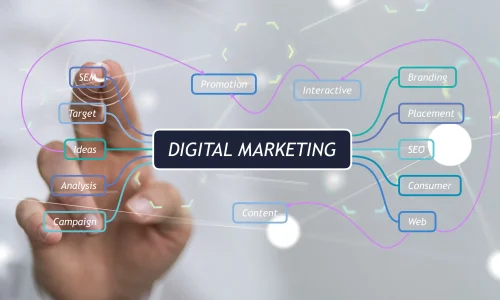Internal and External Links: What Are They and Why Are They Important?
AKT AGENCY improves your internal and external Links because it is crucial to a successful website. They provide a way for users to navigate your site and for search engines to understand the structure and content of the site. A vital part of your search engine optimisation (SEO) involves a deep understanding of the important differences between internal and external links (along with knowing the strategic use of these differences in your overall digital marketing strategy). When these essential components are used accordingly, you will see a positive effect on your overall ranking and they can essentially work wonders for your website but not all connections are created equal. There are two main types of links you should be aware of internal links and external links.
Internal Links
Internal links are links that point to pages on the same website. These are links that connect different pages of your website. Internal links are important because they allow users to navigate your site easily and help search engines understand your site’s structure and the relationship between different pages.
Here are a few best practices for using internal links:
Use descriptive anchor text: Anchor text is the text that appears as a hyperlink. Make sure your anchor text is descriptive and gives users a clear idea of what they’ll find when they click the link.
Link to related pages: Internal links must be relevant to the content of the page. Linking to irrelevant pages can confuse users and harm your search engine rankings.
Use a reasonable number of internal links: Don’t overdo the internal links. Use them when they make sense, but don’t just add them for the sake of having more links.
External links
External links are links that point to pages on other websites. These links connect your website to the rest of the internet. External links are important because they help search engines understand your site’s content and how it relates to other sites on the web. Additionally, external links can be a valuable source of traffic for your site.
Here are a few best practices for using external links that we recommend at AKT AGENCY:
Linking to reputable sites: When linking to external sites, make sure they are reputable and relevant to your content. Linking to spammy or low-quality sites can hurt your search engine rankings.
Use nofollow links when appropriate: If you’re linking to a site but don’t want to forward any link juice to that site, use the rel=”nofollow” attribute. This tells search engines not to follow the link.
Don’t overdo it with external links: Like with internal links, you don’t want to overdo it with external links. Use them when they add value to your content, but don’t just add them for the sake of having more links.
As a result, AKT AGENCY gives you this by giving importance to both internal and external links for the success of your website. Internal links help users navigate your site and search engines understand the structure of the site, while external links help search engines understand your site’s content and its relationship to other sites on the web. By using best practices for internal and external links, you can improve your site’s user experience and visibility in search engine results.






